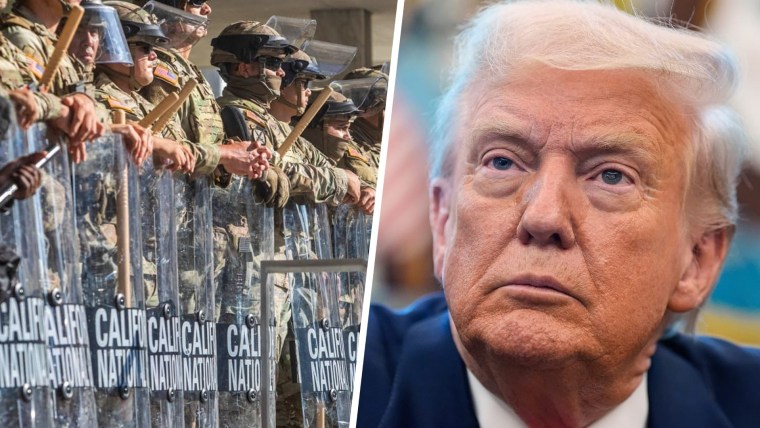By now, the basic elements of the “Signalgate” controversy are probably familiar: Top members of Donald Trump’s national security team participated in an unsecured group chat to discuss sensitive details of a military operation. They also accidentally included a journalist, The Atlantic’s Jeffrey Goldberg, in their online conversation.
The administration officials seemed to realize the importance of secrecy and operational security, but they were reckless and careless anyway.
Roughly six months later, the Signal chat scandal appears to have a burgeoning sequel. The Minnesota Star Tribune reported:
Secretary of Defense Pete Hegseth considered sending an elite U.S. Army strike force to Portland, Ore., to quell protests that President Donald Trump has characterized as ‘lawless mayhem,’ according to images of messages provided to the Minnesota Star Tribune. The messages, casually exchanged last weekend in a crowded, public space, show high-level officials in the Trump administration discussing the deployment of the Army’s 82nd Airborne, an infantry division that has been deployed to combat zones in both world wars, Vietnam and Afghanistan.
The texts were sent by Anthony Salisbury, a deputy to White House policy adviser Stephen Miller, who communicated over Signal “while traveling in Minnesota and in clear view of others”; and were received by Patrick Weaver, a senior advisor to Secretary of Defense Pete Hegseth, according to the Star Tribune’s report (which has not been independently verified by MSNBC).
A source, the newspaper continued, was “troubled by seeing sensitive military planning discussed so openly,” and so this person contacted the Star Tribune.
If this reporting is correct, it’s a story with multiple dimensions. It’s notable, for example, that The Guardian reported last week that Miller, the president’s deputy chief of staff, has played “a leading role” in making decisions related to use of military resources, and the Star Tribune’s article lends additional credence to those concerns.
What’s more, despite the severity of the “Signalgate” controversy from the spring, it appears the White House learned very little from the fiasco, as members continue to have casual online conversations about sensitive security matters.
But most important of all is that top administration officials appear to be discussing the deployment of an elite infantry division for use on American soil in a city in which there is no actual crisis. (A judge issued a temporary restraining order Sunday night to prevent the Trump administration from sending even federalized National Guard to Oregon.)
Evidently, Hegseth expressed some reluctance about this, and according to texts from his aide, the Pentagon chief wanted Trump to expressly tell him to send troops into the American city. From the Star Tribune report:
‘Between you and I, I think Pete just wants the top cover from the boss if anything goes sideways with the troops there,’ Weaver wrote. He acknowledged the potential political ramification of deploying Army troops to a U.S. city. Hegseth preferred to send the National Guard, he wrote.
“82nd is like our top tier [quick reaction force] for abroad. So it will cause a lot of headlines,” he added. “Probably why he wants potus to tell him to do it.”
The White House made no effort to deny the authenticity of the Signal chat, telling the Star Tribune, “Nothing in these private conversations, that are shamefully being reported on by morally bankrupt reporters, is new or classified information.” Similarly, a Defense Department spokesperson said the messages show officials were “working around the clock.”
I don’t imagine we’ve heard the last of this one.

